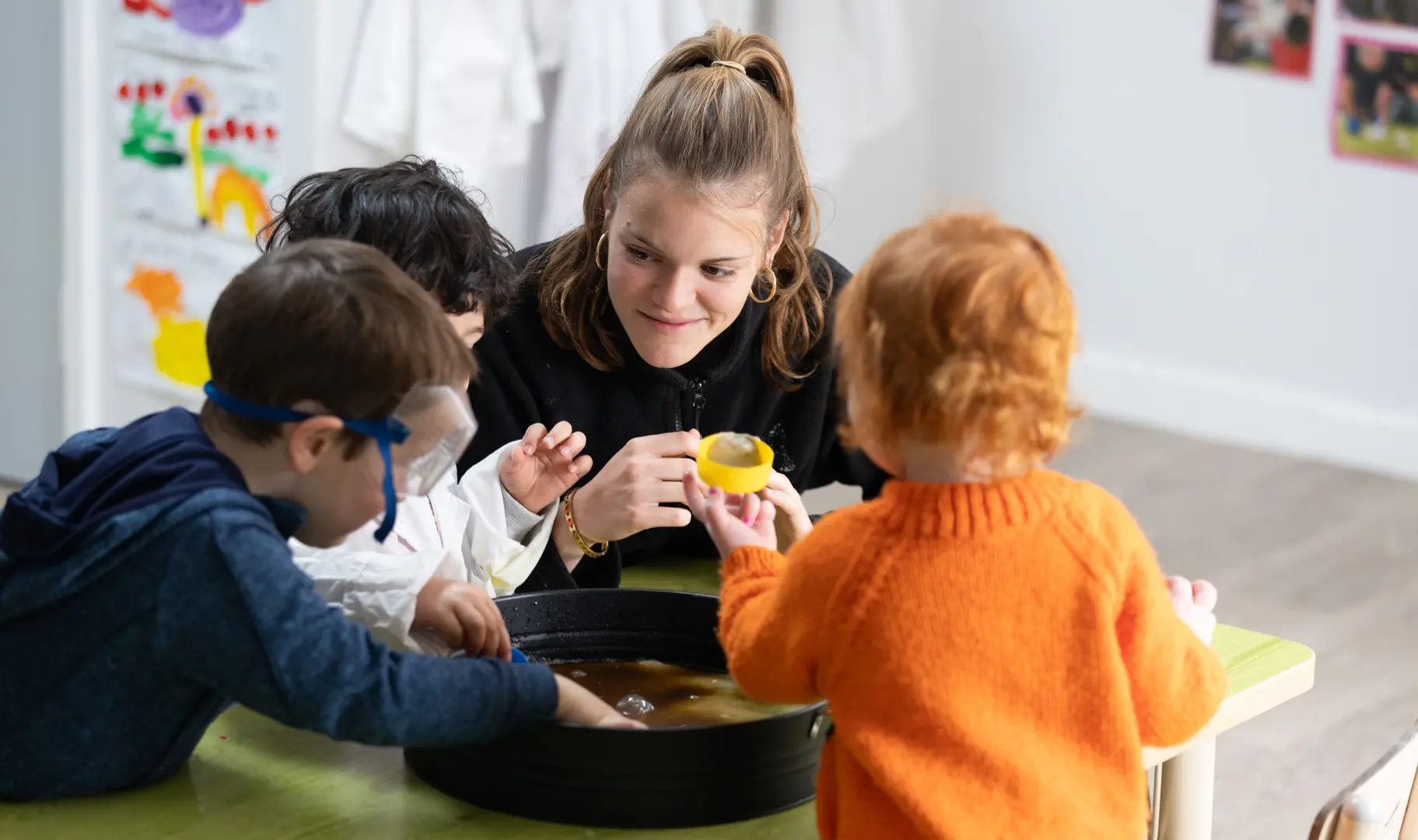
Post updated July 2025.
There’s something truly special about watching a child’s eyes light up when they discover something new. At Kids Academy Early Learning, we believe every child is a mini scientist - curious, hands-on, and full of wonder. And the good news? You don’t need a lab coat or fancy equipment to bring science to life at home.
Here are five simple, safe, and seriously fun science experiments you can try with your toddler or preschooler. Each one introduces basic science concepts while giving you a chance to bond, giggle, and get a little messy together.
1. The Classic Baking Soda Volcano
Always a favourite, this fizzy “eruption” is a playful way to explore chemical reactions.
You’ll need:
Baking soda, vinegar, dish soap (optional), food colouring, a small cup, and a tray.
What to do:
Place the cup on the tray and fill it halfway with baking soda. Add a few drops of food colouring and a squirt of dish soap (for extra bubbly “lava”). Slowly pour in the vinegar and watch the eruption!
What they learn:
Baking soda (a base) and vinegar (an acid) create a fizzy reaction, introducing children to the basics of chemistry.
Safety tip:
Keep little hands out of the mixture and use a washable surface.
“Our preschoolers love the volcano experiment,” says Miss Carly at Kids Academy. “It sparks so many questions - ‘Why does it bubble?’ ‘Can I make a bigger one?’ It’s a fantastic way to explore curiosity and wonder.”
2. Grow Your Own Crystals
This one feels like magic and teaches patience, too.
You’ll need:
Borax, warm water, a jar, string, a pencil, and food colouring (optional).
What to do:
Dissolve 3 tablespoons of Borax in a jar of warm water. Tie the string to the pencil and rest it across the jar so the string hangs in the water without touching the sides. Leave it somewhere safe and watch crystals grow over a few days.
What they learn:
As the water evaporates, the Borax forms solid crystals, showing how solids form from solutions.
Safety tip:
Borax isn’t for eating or touching. Store the jar out of reach of children while it forms.
3. Rainbow Milk Magic
This one is all about colour, swirling patterns, and liquid reactions.
You’ll need:
A shallow dish, full-cream milk, food colouring, dish soap, and cotton swabs.
What to do:
Pour milk into the dish. Add a few drops of food colouring around the surface. Dip a cotton swab in dish soap and gently touch it to the milk. Watch the colours dance!
What they learn:
The soap breaks down the fat in the milk, causing the colours to swirl and mix. It’s a stunning way to explore how liquids react.
Safety tip:
Just for watching - no drinking the rainbow milk!
4. Walking Water
Simple, beautiful, and a great way to explore colour mixing and water movement.
You’ll need:
Three clear cups, water, paper towels, and food colouring.
What to do:
Fill two cups with coloured water (red and blue work well). Leave the middle cup empty. Fold paper towels into strips, placing one end in each coloured cup and the other ends in the empty cup. Over time, water “walks” through the towels and mixes in the middle.
What they learn:
This shows capillary action - how water moves through absorbent materials, just like how plants drink water.
Safety tip:
Use a stable surface to avoid spills.
5. Ice + Salt = Melting Magic
Cold meets colourful in this cool little experiment.
You’ll need:
Ice cubes, salt, food colouring (optional), and a tray.
What to do:
Place ice cubes on the tray and sprinkle with salt. Add food colouring to highlight the cracks and tunnels as the salt melts the ice.
What they learn:
Salt lowers the freezing point of water, speeding up melting. It’s a simple way to explore temperature and change.
Safety tip:
Supervise to avoid slippery floors or cold fingers.
Learning Through Play at Kids Academy
At Kids Academy, we bring learning to life through hands-on discovery every day. Whether it’s creating bubbly volcanoes, exploring the properties of water, or simply asking “What do you think will happen next?”, we nurture curiosity, confidence, and a love of learning from the very start.
These at-home science activities align beautifully with our School Readiness Program. They encourage children to investigate, problem-solve, and make predictions, all skills that prepare them for the transition to big school and beyond.
Why Try These at Home?
Because science play helps your child:
- Build confidence through discovery
- Learn through their senses and questions
- Develop language, logic, and creative thinking
- Strengthen fine motor and observation skills
- Feel connected through shared fun with you
And all it takes is a few pantry items and a bit of curiosity.
So grab a tray, roll up your sleeves, and get ready to explore. Your little one will learn so much, and you’ll love seeing the world through their eyes.
Want to learn more about how we bring science, STEM and sensory play into your child’s day? Find your local Kids Academy centre >